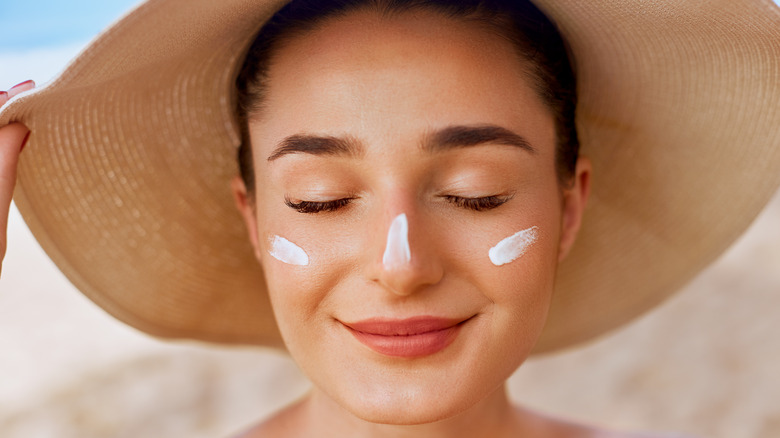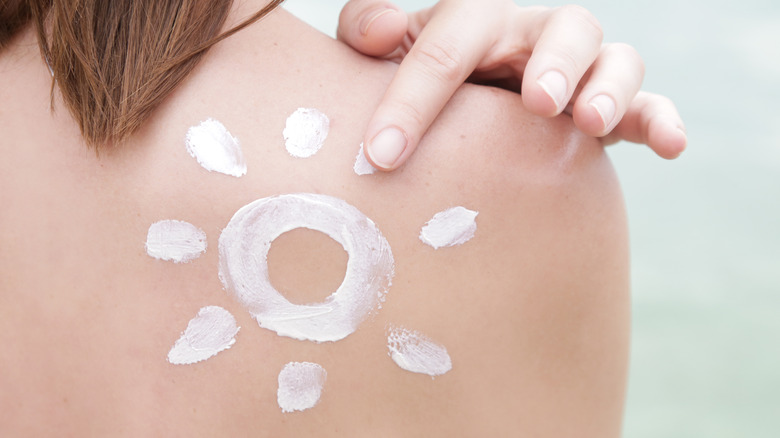Physical Vs. Chemical Sunscreen: Which Is Better For Sensitive Skin?
We're in the age of sunscreen; this generation has stayed UV protected the best and the longest (via the University of Utah). However, the number of products on the shelves and SPFs on the bottles can make picking the right sunscreen an arduously long process, especially for someone who hates calculating.
It also leaves us with a set of assumptions that are more intuitive than accurate; higher SPF means higher protection, right? Not exactly. Sunscreens with SPFs higher than 50 don't offer higher protection, per Business Insider.
We also have to choose between physical and chemical sunscreens, but it's hard to tell which one is which when the packaging is so pretty. The easiest way is to read the ingredients. Physical sunscreens often use minerals like zinc oxide or titanium dioxide while chemical sunscreens might include ingredients like Butyl Methoxydibenzoylmethane and Octocrylene (via Mirror Mirror). Physical sunscreens work by deflecting UV rays off your skin, while chemical sunscreens absorb UV rays and convert them into heat. Both offer protection in different ways, but you may want to use one over the other if you have sensitive skin.
Chemical sunscreen can block pores
Physical sunscreen may conjure images of the white goopy liquid your mom forced you to wear before going to the beach. Chemical sunscreen took care of that — it's absorbed into your skin, you don't need to wear too much of it, and it doesn't leave that ghastly white film on your skin (via Mirror Mirror).
However, chemical sunscreen may not be a great option for sensitive skin types, as they've been known to cause irritation and allergic reactions in some (via La Roche Posay). Board-certified dermatologist Dr. Hadley King tells Byrdie, "Two things can cause sunscreen-related breakouts: occlusion of the pores by comedogenic materials or a sensitivity reaction to chemical UV-blocking ingredients." Dr. King recommends physical sunscreens over chemical ones for this reason.
Fortunately, physical sunscreen formulas have become easier to blend into your skin with time and don't block pores the way chemical sunscreens do. You may need to set an alarm to reapply frequently, but they're also less irritating and work immediately after application, per Mirror Mirror. However, we also recommend consulting with a dermatologist so that you can experiment and find the perfect sunscreen for you.

